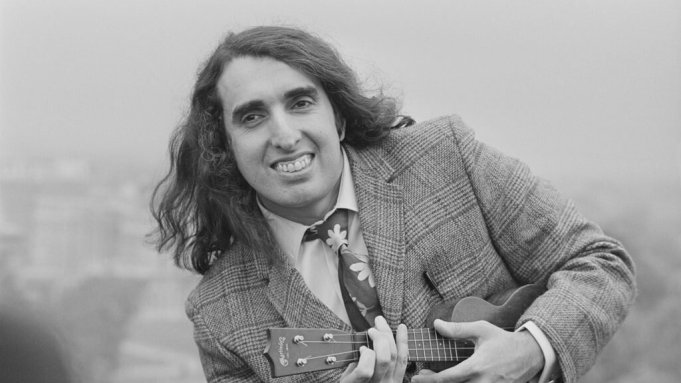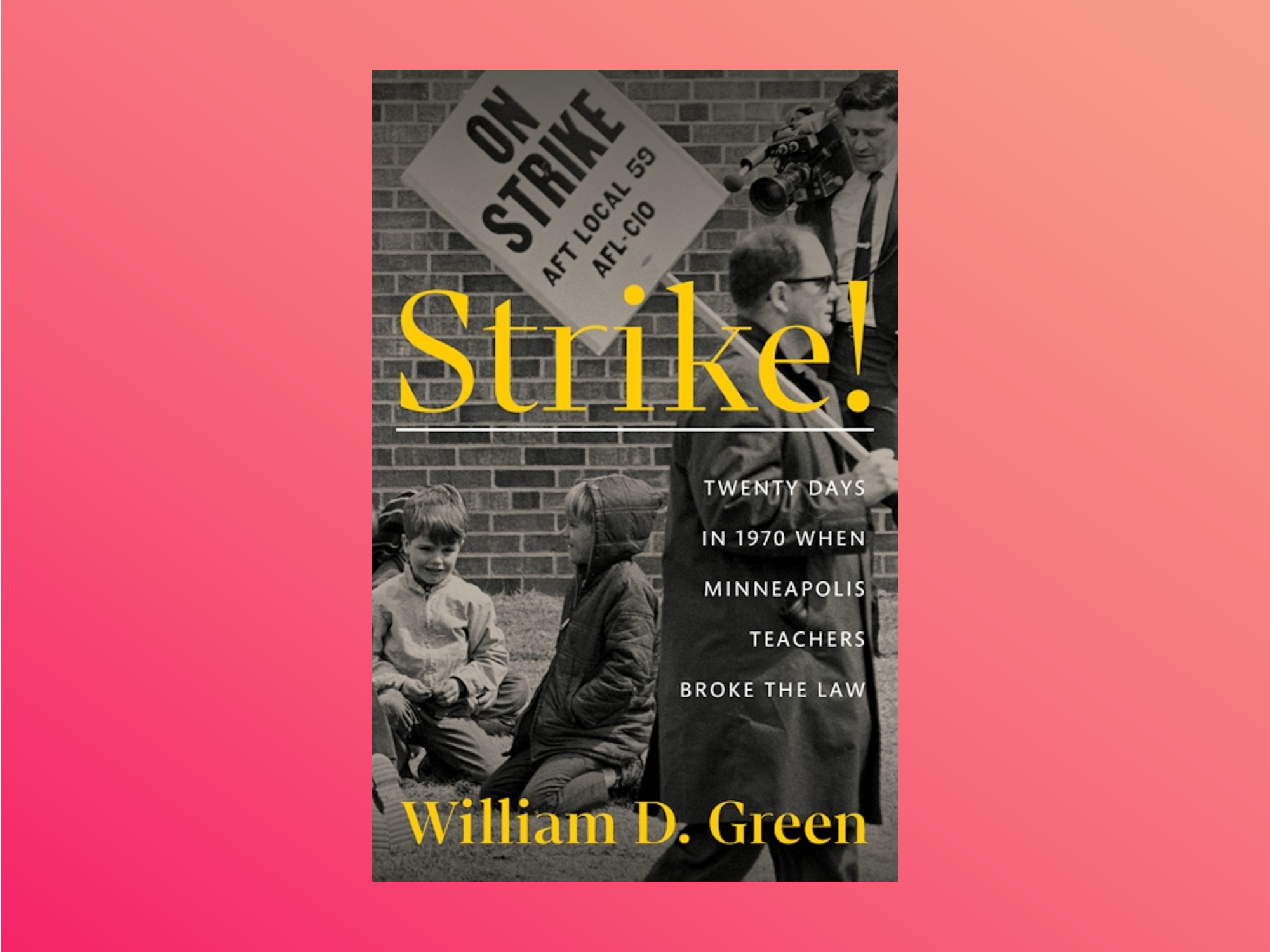Next month, the Sound Unseen festival will present a special screening of Tiny Tim: King For A Day at the Woman’s Club of Minneapolis. The documentary feature, which chronicles the unlikely rise and tragic decline of the ukulele-strumming singer of “Tiptoe Through the Tulips,” is notable because it will screen on the very stage where Tiny Tim famously died in the middle of a performance 25 years ago.
Tiny Tim’s onstage death was not just the most notorious example of such a tragedy in Twin Cities history, but one of the most famous examples of this phenomenon in the modern era. In a way his exit was true to form, as Tiny Tim cultivated a peculiar kind of celebrity his entire life.
Born Herbert Khaury, the man who would come to be internationally known as Tiny Tim was an improbable performer, a hulking guy with long red hair, a falsetto voice, and an intensely genuine, vulnerable demeanor. He emerged from the New York City folk scene and achieved national notoriety through his ubiquitous novelty song and his reliably entertaining appearances on talk shows of the era.
Undoubtedly the zenith of his prominence was a December 17, 1969 episode of The Tonight Show when, in front of God, Johnny Carson, and 45 million people watching at home, he married his first wife on live television. It would remain among the most-viewed broadcasts in American history for many years.
The cardiac episode that killed him at age 64 wasn’t even the first one he suffered onstage. In September of 1996, he had a heart attack while playing at the Ukulele Hall of Fame Museum’s inaugural Uke Expo. He told assembled fans he wasn’t feeling well, then tumbled off the stage as the backing band began to play. Upsetting video of the incident, which is accessible on YouTube, is sometimes mistaken for footage of his final performance, where he suffered his second, fatal heart attack while playing to a waning audience at the close of a fundraiser at the Woman’s Club in November of that same year. The last song he played, of course, was “Tiptoe Through the Tulips.” They buried him with his ukulele.
Surreal as it seems, by passing away onstage during a show, Tiny Tim joined a fraternity of entertainers that’s far more expansive than you might think. In fact, Tiny Tim wasn’t the first artist to die onstage in the Twin Cities, nor would he be the last.
On January 8, 1970, actor George Ostroska was felled by a heart attack during the second act of Macbeth. He was performing the title role at St. Paul’s Crawford Livingston Theater (at 30 East 10th Street, now the site of the Upper Mississippi Academy charter school). Ostroska’s untimely demise at 32 is often cited as an example of the curse of Macbeth, the long-running showbiz superstition that even saying the name of the play invites bad luck. (This is the reason your theater-kid friends refer to it as “the Scottish Play.”) While it may seem absurd, Ostroska’s shocking early exit certainly doesn’t argue the contrary.
More recently, on January 25, 2019, musician Doug “DJ” James died while playing with his band The Rockin’ Hollywoods during a gig at Mancini’s in St. Paul. According to a report in the Star Tribune, James slumped over his drum kit mid-performance. He had played with the group for 18 years and was 65 years old when he passed.
The lengthy roll call of artists who have died onstage includes actors, musicians, comedians, magicians, circus performers, and orchestra conductors. Among their ranks is legendary actor and playwright Moliere, who died on February 17, 1673 while starring in one of his own creations for King Louis XIV. (The title of the play? The Hypochondriac.) Harry Einstein, a popular mid-century comedian who performed as a Greek character called Nick Parkyakarkus, shuffled off this mortal coil—but not the stage—during a Friar’s Club roast of Lucille Ball and Desi Arnaz. (Einstein is probably best known now as the father of Bob Einstein, aka Super Dave Osborn, and comedian/filmmaker Albert Brooks.) The list goes on.
You can read dozens more morbidly fascinating stories in Jeff Abraham and Burt Kearns’s book The Show Won’t Go On: The Most Shocking, Bizarre, and Historic Deaths of Performers Onstage. (Gotta dig the one about the fellow who met his end during an interview on The Dick Cavett Show—he was a health expert who specialized in longevity.)
One of the themes that runs through Abraham and Kearns’s insightful, darkly fascinating book is the consensus that, while almost nobody wants to go, there’s an oddly heart-warming mystique in dying while sharing one’s art with a live audience.
It’s a sentiment shared by Rockin’ Hollywoods bandleader Steve Ghizoni, whose friend Doug James died with his drumsticks in his hands at Mancini’s. “Not only did he die doing what he loved,” Ghizoni told the Star Tribune, “but it also happened in his hometown, which he also loved.”






